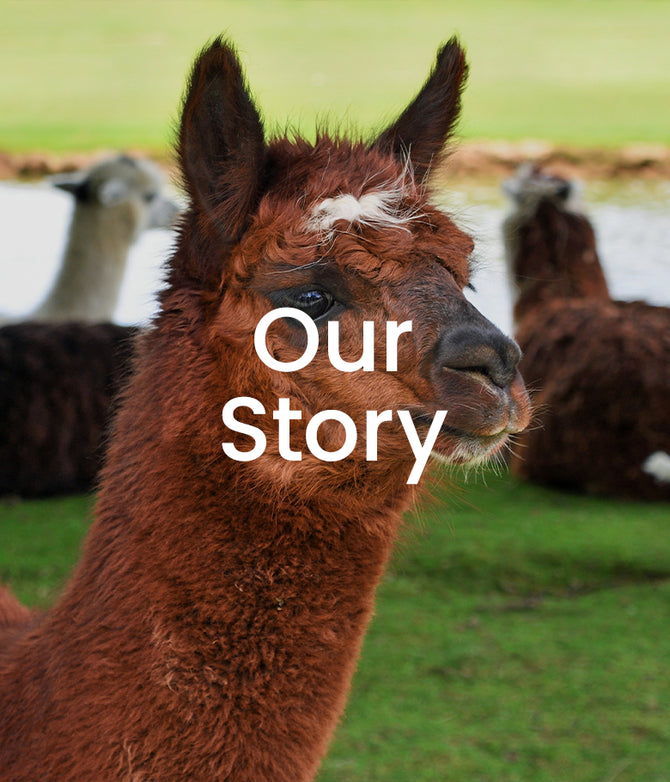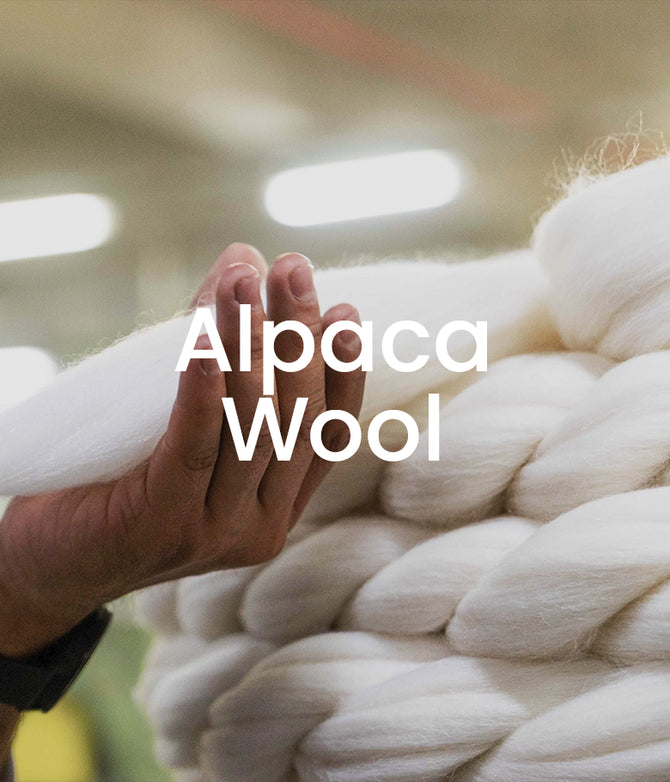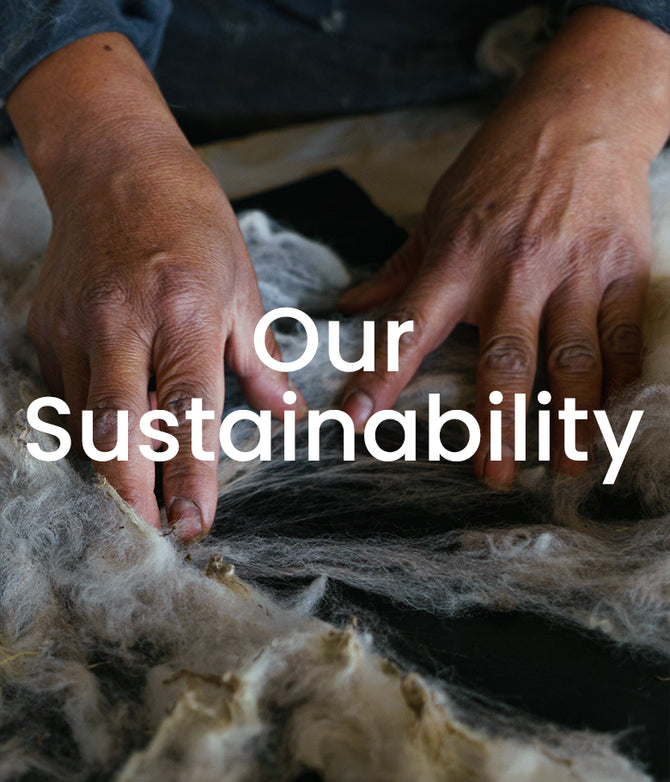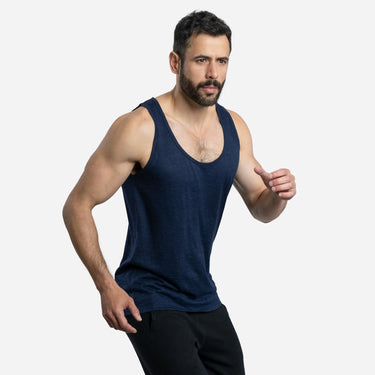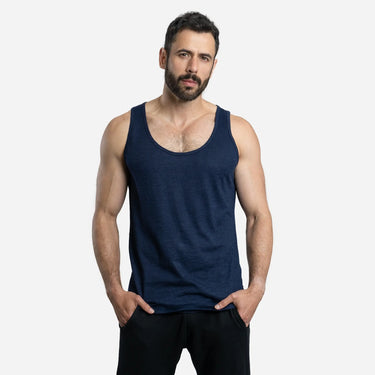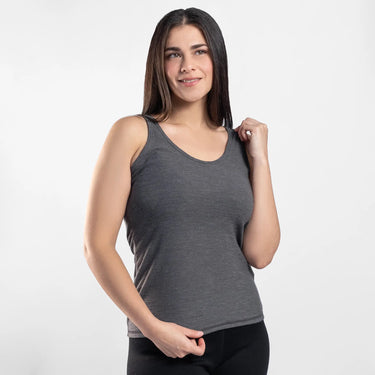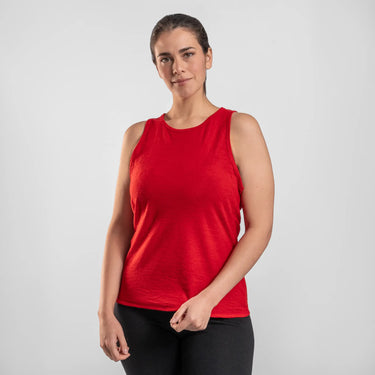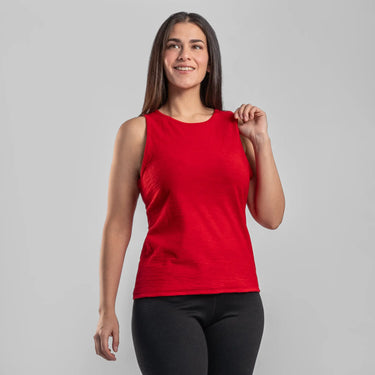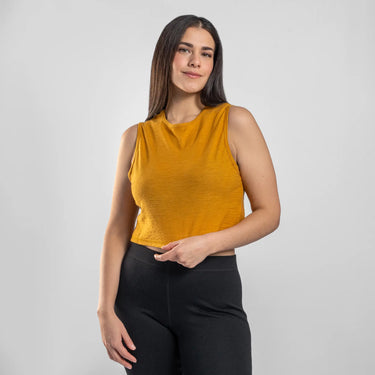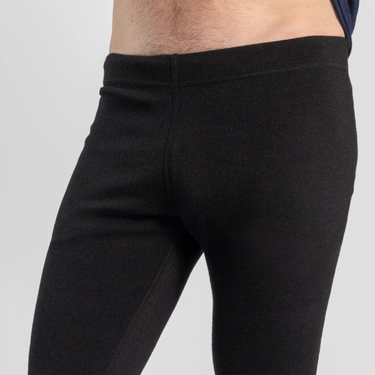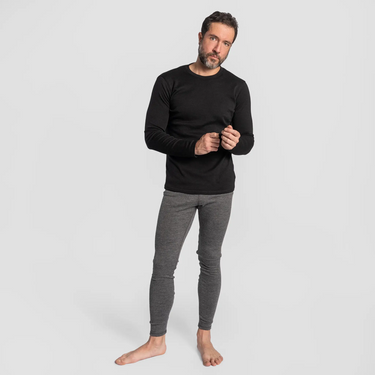Alpaca Wool: Keeping You and the Planet Cool This Summer
17 June 2021
This is a guest post written by Sustainable Jungle. Follow them for more tips on sustainable living & hacks and ethical fashion.
Ah, alpaca wool.
Deemed “the fiber of the gods” for its luxurious softness, this sustainable and ethical animal-based fabric is as cozy as a campfire and as refreshing as a dip in the ocean.
It’s no surprise then that brands like Arms of Andes use it in their line of ethical activewear.
Not only is alpaca wool one of the most sustainable fabrics, it’s suitable for all-season wear (even summer!). From the way it feels and functions to the cooling relief it provides our planet, this fabric is making waves in the world of sustainable and ethical fashion.
So let’s take a hike to explore why alpaca wool is the hottest (metaphorically speaking, that is) fabric for a summer wardrobe.
ALPACA WOOL FEELS GREAT
Alpacas are a member of the camel family, most similar to the llama, but with much finer fur. In processed form, their fur is similar to sheep’s wool but softer and less itchy.
Measuring between 16 and 25 microns per strand, alpaca wool is most similar to cashmere, but with a lower price point.
Taking Arms of Andes clothing for example, which uses Royal Wool (the finest 1% of alpaca wool), you’ll feel just as comfortable in your summer activities as you would lounging around.
Alpaca wool is also lanolin-free and hypoallergenic.
What is lanolin you ask?
It’s a fatty substance produced by sheep which can cause skin irritation for those with sensitive skin. Since lanolin is a grease, being absent it also makes alpaca wool clothing easier to clean with a non-intensive eco friendly laundry detergent.
ALPACA WOOL PROTECTS YOU FROM THE ELEMENTS
Alpaca wool clothing won't just keep you comfortable because of its softness; it’ll also keep you comfortably protected from the harsh elements that come with hot weather.

Each fiber contains microscopic air bubbles that wick moisture away from the skin, much like a sponge, and dries it quickly. No matter how sweaty you get on your morning bike ride, you won’t get that sticky, thigh chafing in a pair of alpaca wool leggings.
That same property also makes alpaca wool moderately water-resistant and wind-resistant, especially useful for those moments of unpredictable weather you might encounter while scaling mountaintops.
Not only will that Arms of Andes organic hoody keep you cool and protected from the sun's harmful UV rays, it will also keep you warmer than regular wool when the sun goes down.

That’s because alpaca wool isn’t just temperature cooling but temperature regulating thanks to the hollow nature of the fibers. The same air bubbles that allow breathability in the heat will trap body heat close to the skin when the temperature cools off.
Plus, you won’t feel the need to dodge every campfire ember that spits your way, because alpaca wool is nonflammable, so much so that it meets the U.S. Consumer Product Safety Commission's specifications as a Class 1 fiber.
Not that we recommend intentionally testing that one out!
ALPACA WOOL CLOTHING IS DURABLE
All those properties aside, durability is what makes alpaca wool especially suitable for summer wear and sustainable outdoor clothing.
A single alpaca fiber averages 8-12 inches in length, meaning it is more durable than merino and cashmere wools, and less likely to pill. If mild pilling does occur, it can be removed with a soft brush.
It’s also wrinkle-resistant, stain-resistant (because the fibers don’t have raised scales like other wool), and odor-resistant, all of which amount to you needing to wash your alpaca wool garments less often.
If you’re looking for a hassle-free fabric to fill your sustainable luggage for your two-week vacation with limited laundry services, alpaca wool will keep you looking and smelling fresh for days on end.
While less delicate and easier to wash than other luxury fibers, when the time comes you should still wash as gently as possible in cold water and lay flat to dry to avoid shrinking or stretching.
ALPACA WOOL IS LOW IMPACT
Not only is alpaca wool one of the most durable and versatile fabrics in terms of qualities, it’s also one of the most sustainable, even compared to other natural fabrics.
One way alpaca wool is more eco-friendly than many fibers used in summer garments (namely synthetic fabrics) is that it is biodegradable, depending on what it’s combined and processed with, of course.
Considering most alpaca wool is processed by indigenous communities, it’s largely dyed naturally using plants and insects, meaning toxic dyes shouldn’t be the reason you can’t toss those holey wool leggings in your home compost bin.
Especially considering alpaca fiber contains special proteins which allow the hairs to biodegrade in an even shorter time than other wools.
The animals themselves also have a far smaller hoofprint than other wool-producing herd animals.
Whereas cashmere goats destroy the land on which they roam, leading to major desertification in the fragile Mongolian ecosystem, alpacas roam the Peruvian highlands, a hearty and resilient ecosystem.
Unlike cashmere goats, they’re light eaters (meaning they leave the roots of their food intact to regrow and don’t eat as much) and consume little water.
Rather than sharp hooves, alpacas have padded feet so they don’t destroy the soil. In fact, they actually support it by gently tilling the land as they walk, promoting new growth.
ALPACA WOOL IS ETHICAL
Beyond all that, alpaca is just about the most ethical wool available.
According to The Council of Fashion Designers of America Material Index, “For the most part, animal rights are not a big problem when it comes to alpaca production.”
Unlike other animal fibers sourced through mass farming, alpacas are raised free-range in their natural Andean habitat.
In fact, 80% of all alpaca wool comes from Peru, and 85% of that from small, indigenous farming communities that keep the alpacas alive as long as possible and do not kill the animals for their wool.
While merino wool is often associated with a shearing practice known as mulesing, the once-annual alpaca shearing process takes only about 5 minutes and keeps the alpaca healthy for the rest of their roaming.
On your next woodsy outing, enjoy both the outer peace of nature and the inner peace of knowing your outfit helps promote animal welfare.
FINAL THOUGHTS ON ALPACA WOOL
Whether you’re looking for a simple t-shirt to keep you covered at the beach or to curate a slow fashion wardrobe for that big summer trip, you can’t go wrong by choosing alpaca from a responsible brand.
Especially considering that its eco-friendly nature will help keep those oceans blue and hills green for many summers to come.








